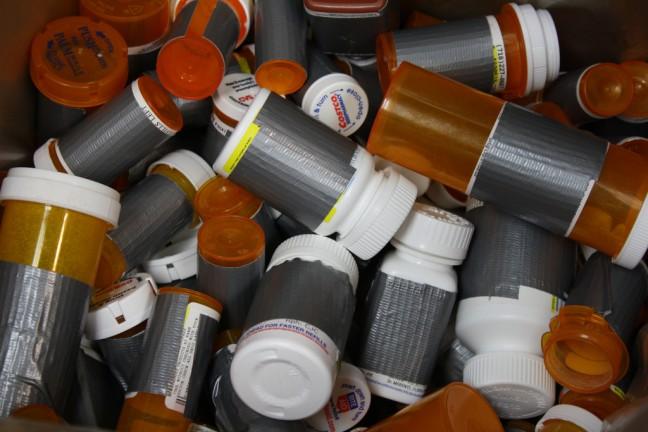Rep. John Nygren, R-Marinette, introduced four new bills Wednesday that aim to further the state government’s initiative against Wisconsin’s heroin and opiate epidemic.
Lori Cross Schotten, Wisconsin United We CAN spokesperson, said these new bills tighten areas that impact addiction and align them with federal treatment guidelines.
“Hopefully we’re going to expand the options a little bit more within the state with these new bills,” Cross Schotten said.
Jenny Malcore, Nygren’s chief of staff, said the Synthetic Urine Bill criminalizes possession, manufacturing, distribution and advertisement of any substance or device that can evade, interfere with or substitute a bodily fluid during a lawfully administered drug test.
With no current legislation criminalizing the use of synthetic urine to pass a workplace drug test, employers cannot do anything about it, Malcore said.
Under the synthetic urine bill, using the substance will be illegal and those found guilty of using it can be penalized.
“This bill helps people know we’re serious about this and we need you to get clean; we need you to do your job,” Malcore said.
Another bill Nygren proposed is based on a University of Wisconsin LaFollette School of Public Affairs report that analyzed barriers opioid dependents face when seeking treatment.
Currently, state law relating to opioid treatment programs is more regulated than federal law. This inhibits treatment programs from expanding, Malcore said.
The bill would make certain state opioid treatment program regulations align with federal law to reduce barriers for opioid dependents, Malcore said.
The third bill would allow the Medical Examining Board, the Board of Nursing, the Dentistry Examining Board and the Optometry Examining Board to issue guidelines regarding best practices in prescribing controlled substances, Malcore said.
Nygren’s fourth bill would create reporting requirements for the Prescription Drug Monitoring Program. The Controlled Substances Board would review and evaluate the data to determine the effectiveness of the monitoring program and compare actual outcomes with projected outcomes, Malcore said.
“These changes would be a good way to get more people on board and keep treatment programs that are normally difficult to staff running,” Malcore said.
Cross Schotten said the bill package is a “really good thing” and would help expand treatment for opioid and drug abusers across the state. More than 800 people died from overdosing on prescription medicine in 2013, she said.
Cross Schotten said opioid withdrawal process is difficult because opioid consumption changes the brain. There is a shortage of detox and treatment locations in the state, with most options being very expensive, Cross Schotten said.
“Someone overdoses in Wisconsin about every hour for every day of the year,” Cross Schotten said. “That’s a huge potential loss of people in our state.”
Cross Schotten said opioid and substance addiction is a family disease because the addiction affects all family members even when only one member is technically addicted. Wisconsin United We CAN works with families impacted by addiction, providing them with treatment options and resources to deal with it, Cross Schotten said.
Malcore said the bills will be reviewed by a committee before hopefully being sent to the Assembly floor in February.


